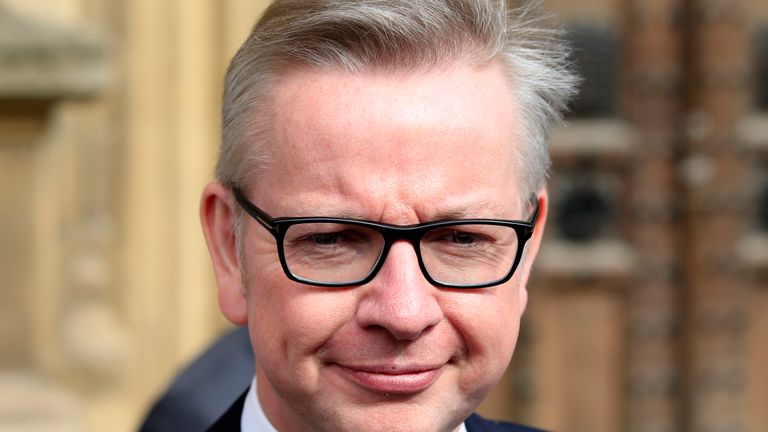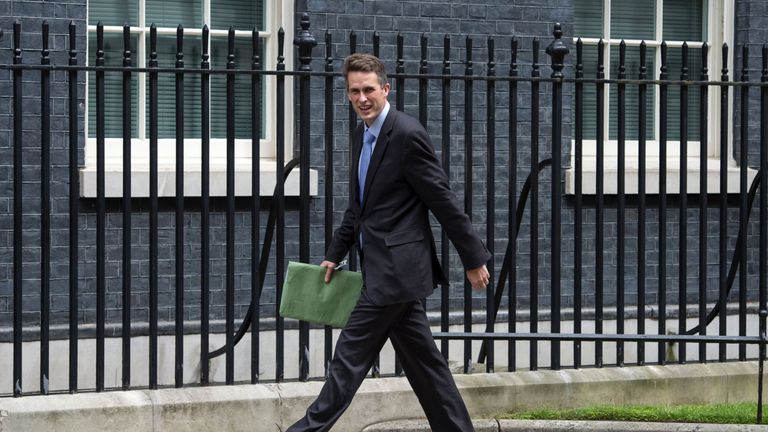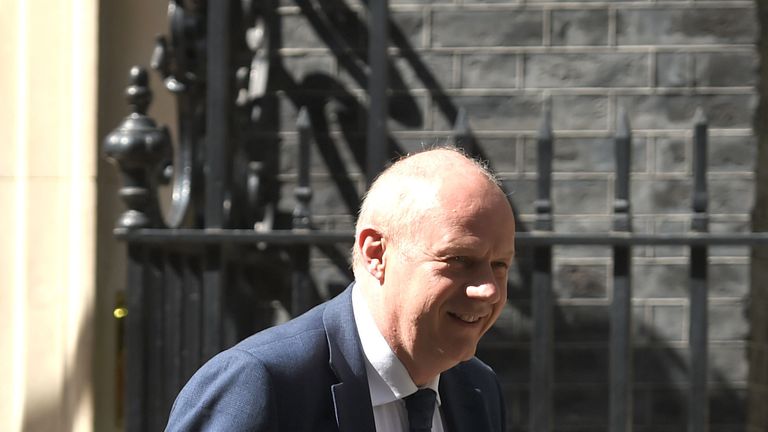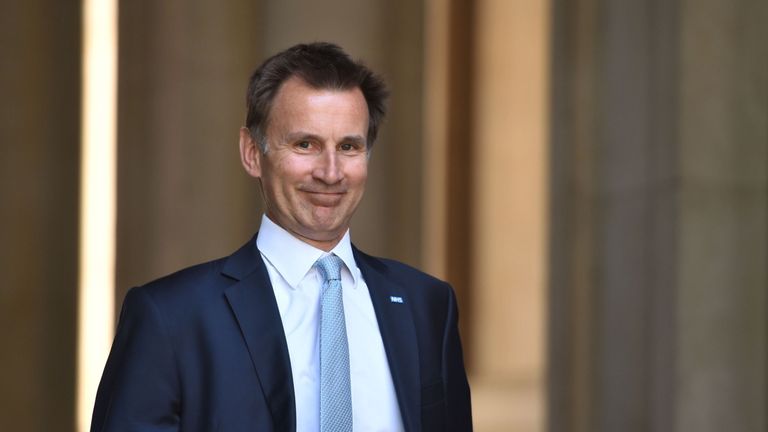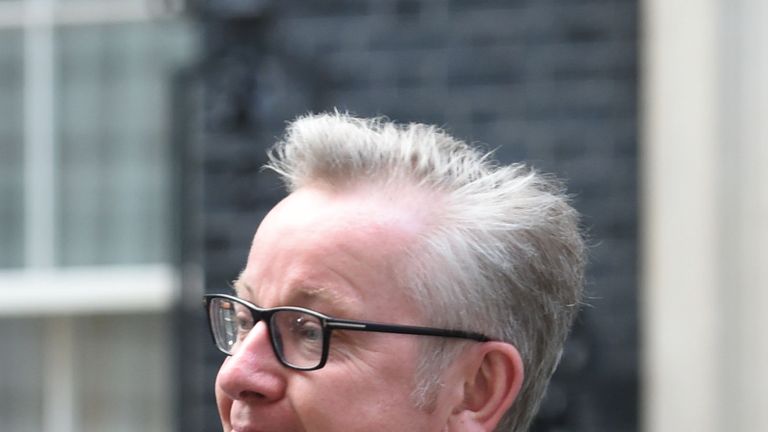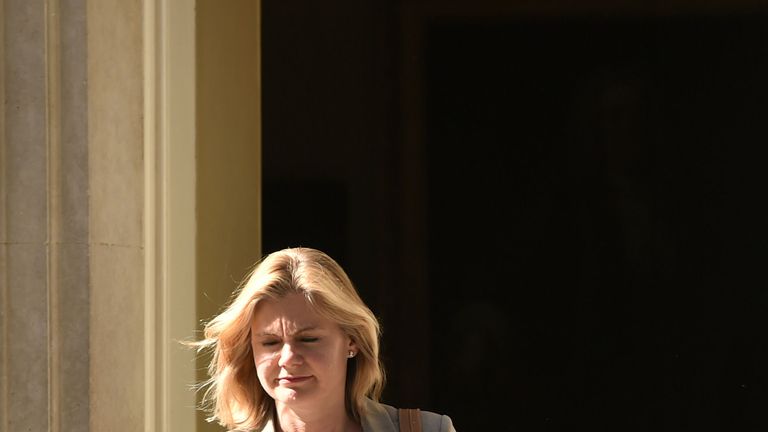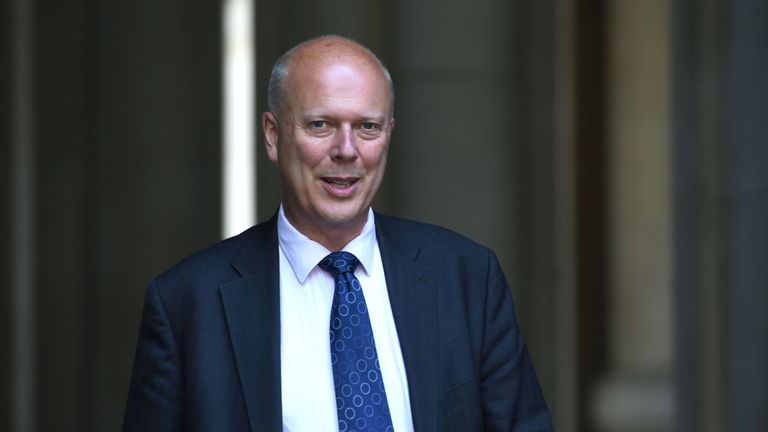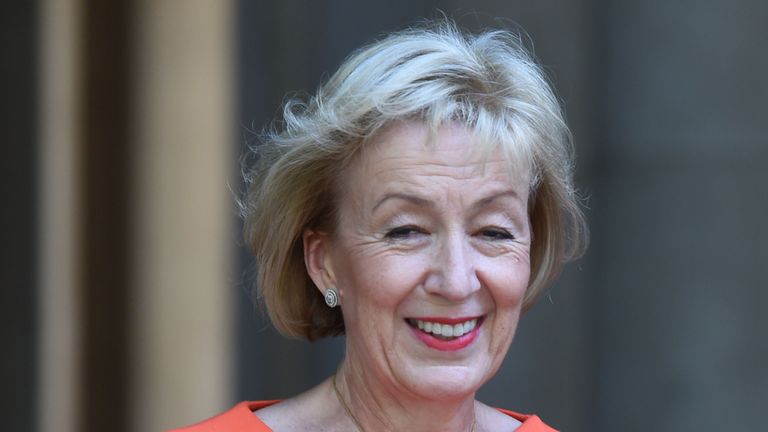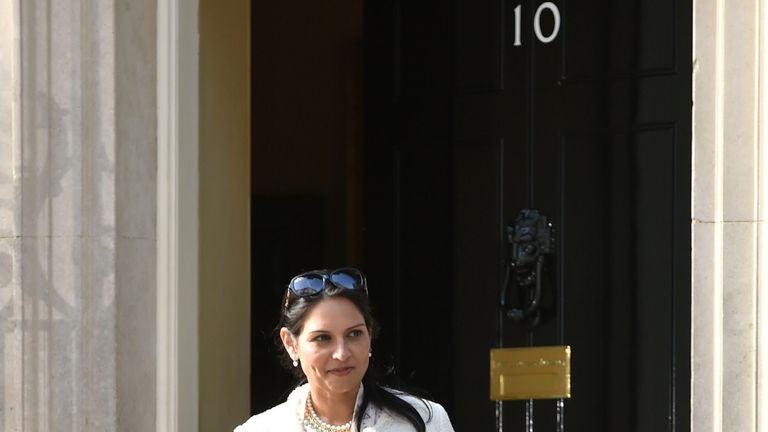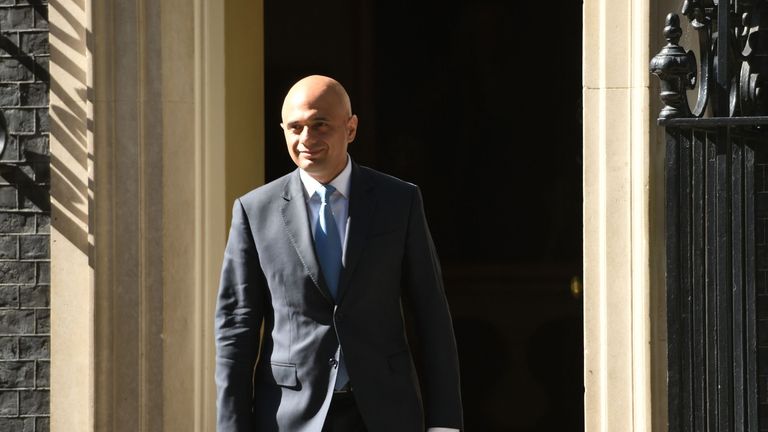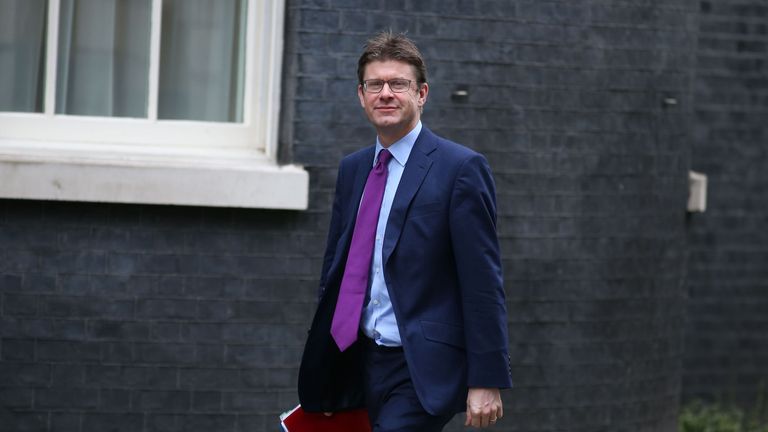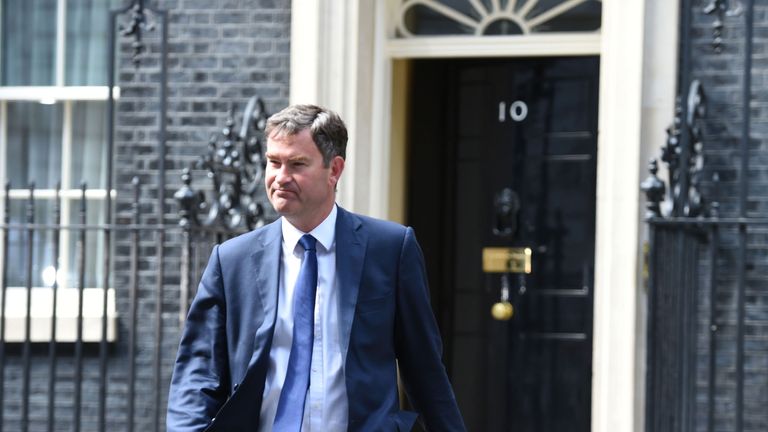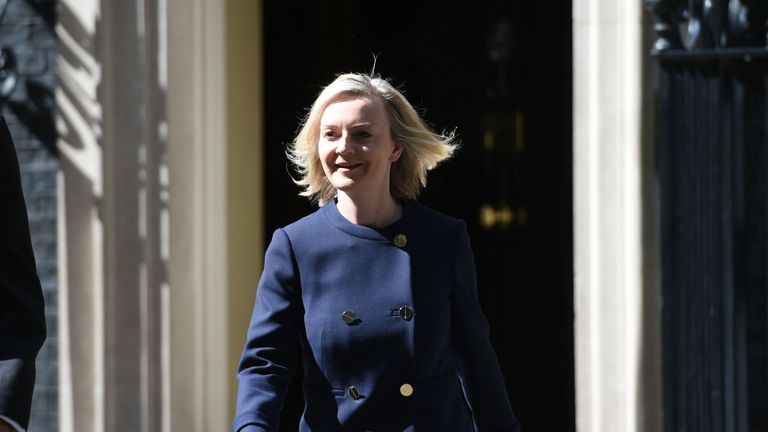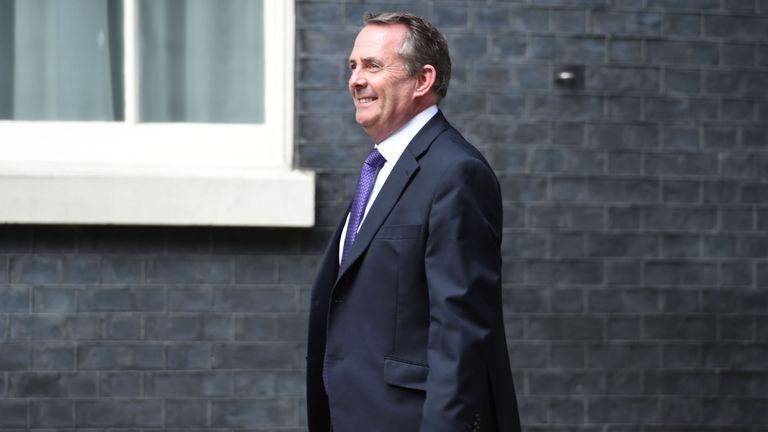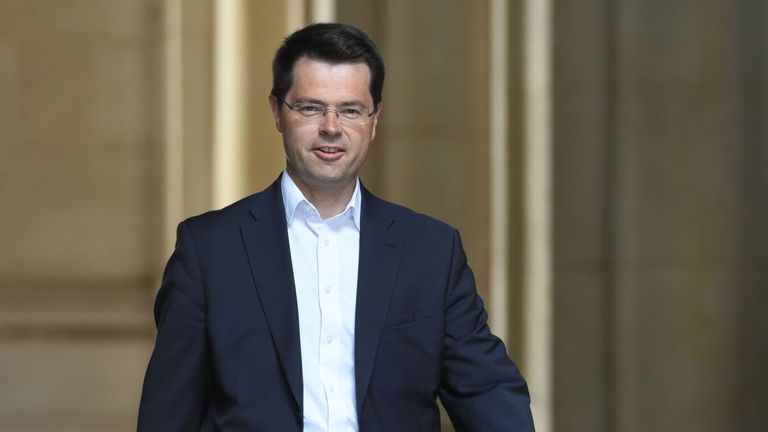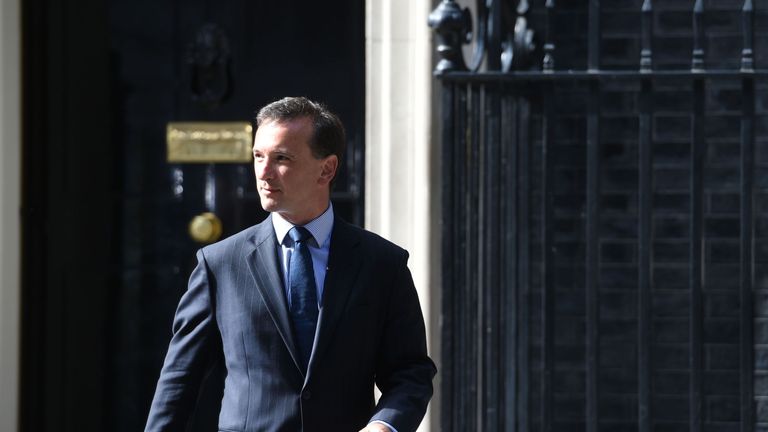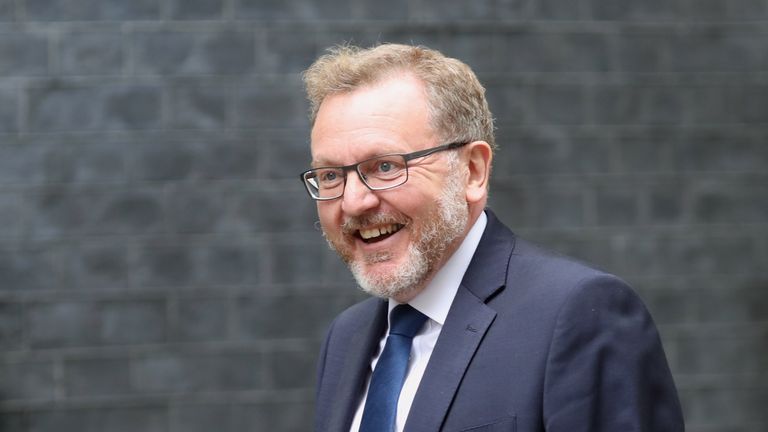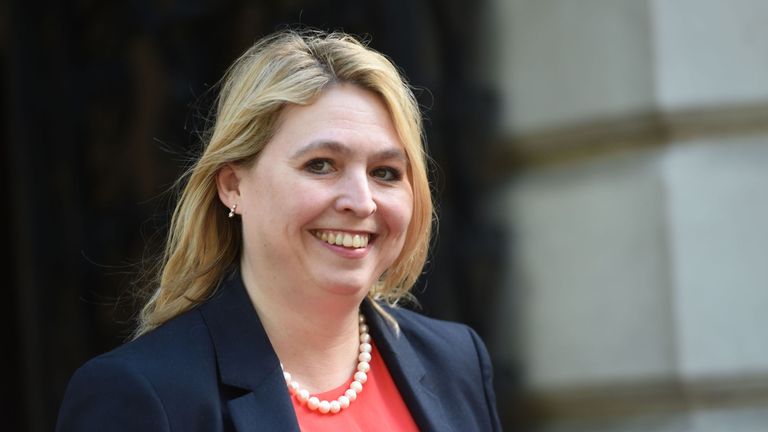Theresa May's reshuffle: Who's in, out and who's moved sideways
As Gove makes his way back into the Cabinet and BoJo announces his support for the PM, we take a look at the new Tory Government.
Monday 12 June 2017 07:32, UK
The Prime Minister has appointed her Cabinet, in what Sky's Faisal Islam has called "a shuffle, more than a reshuffle".
The biggest surprise is the return of Michael Gove, with Foreign Secretary Boris Johnson announcing his support for Theresa May and tweeting that it was a "GOVEment of all the talents".
So who's in? Here is the full list of those cherry-picked by Mrs May as she tries to secure her position...
CHIEF WHIP
Gavin Williamson will remain in the position he has held for one year. He is currently being kept busy in Belfast conducting negotiations with the Democratic Unionists on supporting a minority Conservative Government.
FIRST SECRETARY OF STATE AND MINISTER FOR THE CABINET OFFICE
Welshman Damian Green, former Work and Pensions Secretary, was Theresa May's contemporary at Oxford where he was president of the Oxford Union and, says Sky News' Beth Rigby, is her biggest friend in the Government. He has been moved sideways, rather than promoted, to replace Ben Gummer, the ex-Ipswich MP who lost his seat despite writing the Conservative manifesto.
SECRETARY OF STATE FOR HEALTH
Jeremy Hunt has kept hold of the role he's held for the last five years. The Oxford graduate, who was elected as an MP in 2005, has been unpopular with many National Health workers, with his decision to impose new contracts on junior doctors attracting particularly heavy criticism. Following the first reshuffle last July, Mr Hunt tweeted: "'Reports of my death have been greatly exaggerated ...' Thrilled to be back in the best job in Government."
SECRETARY OF STATE FOR ENVIRONMENT, FOOD AND RURAL AFFAIRS
Michael Gove has been welcomed back into the Cabinet after a year out in the wilderness, replacing Andrea Leadsom as Environment secretary. He put his hat in the ring during the 2016 Tory leadership campaign, but was eliminated in the second ballot. The former justice secretary was sacked shortly after Mrs May took over as leader of the party. Mr Gove said he was "delighted and flattered" by his new position, which he said was a "surprise" he "genuinely didn't expect".
SECRETARY OF STATE FOR EDUCATION and MINISTER FOR WOMEN AND EQUALITIES
Justine Greening also stays in her job despite, Beth Rigby says, her personal misgivings about the PM's enthusiasm for grammar schools. As a comprehensive school-educated daughter of a Rotherham steel worker, she was part of the changes that Mrs May rung to distance her Cabinet from that of David Cameron's - but she was largely kept away from the election campaign even though education was a major battleground.
SECRETARY OF STATE FOR TRANSPORT
Chris Grayling, who has been an MP for the past 16 years, will remain in the transport role he has held since July 2016. A former leader of the House of Commons, he has held several Cabinet and shadow cabinet positions. The Cambridge graduate was an ardent supporter of the Leave campaign, and no doubt helped his chances of favourable treatment from Mrs May by backing her bid for leadership last year.
LEADER OF THE HOUSE OF COMMONS
Andrea Leadsom replaces David Lidington as Leader of the House after one year in the role. The former environment minister went head to head with Mrs May in the Conservative leadership campaign last year, but withdrew after making ill-judged comments about Mrs May's status as a childless woman. Elected as MP for South Northamptonshire in 2010, she previously worked in the financial sector.
SECRETARY OF STATE FOR INTERNATIONAL DEVELOPMENT
Priti Patel will keep hold of her international brief, a role she says she is "honoured" to hold. A vocal Brexiteer, Ms Patel was employment minister before taking on the brief. She had previously worked in consultancy, lobbying for tobacco and alcohol industries. Kicking off her career in the Conservative Central Office in 1997, she became MP for Witham, Essex, in 2010.
SECRETARY OF STATE FOR COMMUNITIES AND LOCAL GOVERNMENT
Sajid Javid is another who has been rewarded for successfully containing a series of policy battles during the near-year he has been in post. The future of housing has become one of the most important areas of argument and he was not able to be as radical as he would have wished - but he was integral to defusing a row with Surrey County Council over social care and managed to downplay a u-turn of business rates relief.
SECRETARY OF STATE FOR BUSINESS, ENERGY AND INDUSTRIAL STRATEGY
Greg Clark keeps his job after proving a safe pair of hands by defending government policy on the energy cap and working to limit the effect of the sale of Vauxhall to Peugeot. He is said to have acted quickly in the hours after the Government's failure to win a majority, working to co-ordinate a business voice in favour of a softer Brexit, and so may be crucial to the emerging strategy as talks in Europe get under way.
SECRETARY OF STATE FOR WORK AND PENSIONS
David Gauke, previously Chief Secretary to the Treasury, is a former solicitor who has been viewed as a safe pair of hands over recent months. His promotion follows an election campaign during which he was regularly relied upon to state the Government's case.
CHIEF SECRETARY TO THE TREASURY
Liz Truss, who previously combined the roles of Justice Secretary and Lord Chancellor - becoming the first woman to hold the roles - has been demoted after being criticised for failing to stand up for judges when they came under attack from the press and politicians over the Article 50 Brexit case. Her tenure also included a rise in prison violence. Her appointment had previously been attacked as it broke with precedent by giving the job of the head of the judiciary to a non-lawyer.
SECRETARY OF STATE FOR INTERNATIONAL TRADE
Liam Fox holds on to his job despite a series of slip ups in his role as ambassador for UK trade around the world ahead of the need for deals with other countries when Britain leaves the EU. The staunch Brexiteer and doctor is a critic of abortion and supporter of the Armed Forces who ran twice for the leadership of the Conservative Party. Beth Rigby says his complete absence in the election campaign was a signal of how his loyalty may have been viewed by Mrs May's inner circle.
SECRETARY OF STATE FOR JUSTICE AND LORD CHANCELLOR
David Lidington replaces Liz Truss despite also not being a lawyer, moving into the role from Leader of the House of Commons. He has some knowledge of European law that may come in handy when attempting to understand legislation that may replace the role of the European Court of Justice, having enjoyed an earlier job as Europe Minister. Being House Leader has largely helped him avoid the glare of publicity that has led to some of his colleagues being exposed.
SECRETARY OF STATE FOR NORTHERN IRELAND
James Brokenshire is back in his Northern Ireland role, which was left vacant by Theresa Villiers when she resigned from the position last year. A law graduate, Mr Brokenshire worked in an international law firm before becoming an MP. He was formerly minister for security and immigration.
SECRETARY OF STATE FOR WALES
Fluent Welsh speaker Alun Cairns, who was one of eight Welsh Tories to kept their seats after three were lost to Labour, has been kept in place at a time when Labour saw their vote share in the nation rise dramatically.
SECRETARY OF STATE FOR SCOTLAND
David Mundell keeps hold of his Scottish role, pledging to "forge a much more constructive relationship" with the Scottish Government. He was first given the brief in 2015 as Scotland's only Tory MP. On hearing of his re-appointment, Mr Mundell said he would seek the "right Brexit deal for Scotland" as well as "reset the relationship between Scotland's two governments".
SECRETARY OF STATE FOR CULTURE, MEDIA AND SPORT
Karen Bradley stays in her position as overseer of the culture portfolio, a role she took over from Jon Whittingdale in 2016. A former tax manager, Mrs Bradley studied mathematics at Imperial College London before entering politics, where she worked her way up to the position of Parliamentary Under Secretary of State in the Home Office, a position she held from 2014 to 2016, when she was handed the culture brief.
